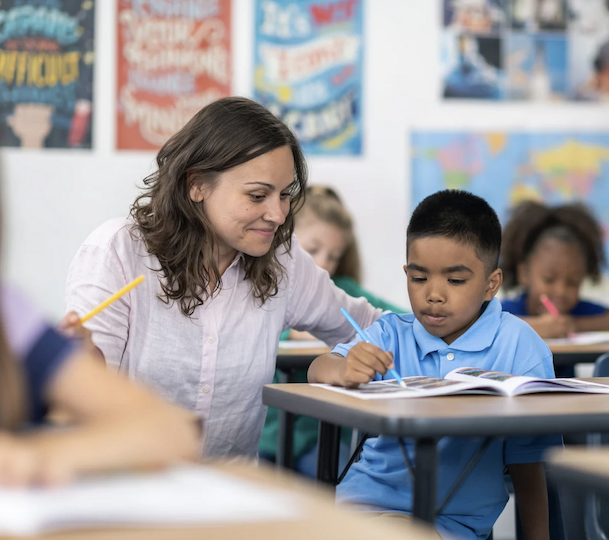
Kids have a lot to learn in their first five years of life. They learn to walk, talk, and eventually to start reading. But while kids can pick up walking and talking naturally, they must be taught how to read. Read more >>
Request an Appointment
English: 650.688.3625
Medi-Cal: 650.688.3650

Kids have a lot to learn in their first five years of life. They learn to walk, talk, and eventually to start reading. But while kids can pick up walking and talking naturally, they must be taught how to read. Read more >>

Teachers: A Pivotal Piece of the ADHD Diagnosis Puzzle
by Pardis Khosravi, PsyD, Clinical Director, Catherine T. Harvey Center for Clinical Services, CHC Next to their parents, who spends the most time with kids? Teachers. Educator, mentor, nurturer, inspiration…teachers play many roles in their students’ lives. They are also Read more >>

My Child Is a Strong Reader But Struggles with Writing. How Can I Help?
by Julie Abbott Olsen, MA, CCC-SLP, Speech and Language Pathologist, CHC Reading and writing are closely related skills, and they often go hand-in-hand— that is, they support each other in language development. However, they are also distinct skills with some Read more >>

The Benefits of Sensory Movement Pathways for Children
Sensory movement pathways encourage regular physical activity, helping students stay active and combat sedentary behaviors. Regular movement can contribute to improved cardiovascular health, better muscle tone, and enhanced overall physical fitness. Read more >>

Dual Language Learners: Resources for Educators and Caregivers [web resource]
These resources from the Head Start Early Childhood Learning & Knowledge Center offer information and guidance on the needs of children who are acquiring two or more languages at the same time or are learning a second language while developing Read more >>

Bilingual Books for Emergent Bilinguals
Bilingual books are not about simply placing the books in your library and hoping they will get utilized by your students. Likewise, the books are not an answer to diversity issues in your classroom teaching. Bilingual books deal with the Read more >>

Emergent Bilingual Students: Shifting to An Asset Model of Instruction
For years, ELL students have been regarded as students who come with a deficit, or gaps, in their knowledge. The assumption is that these students must be taught English in order to assimilate into our culture and ultimately be successful Read more >>

Supporting Emergent Bilingual Children in Early Learning [downloadable]
Supporting Emergent Bilingual Children in Early Learning from Education Development Center (EDC) draws on current research into how children learn, giving educators promising practices for supporting the diverse needs of young learners. Read more >>

5 Study Tips for Neurodivergent College Students
For neurodivergent college students to navigate their academic journey successfully, it’s essential to develop effective study habits and strategies. Here are some valuable study tips. Read more >>

How to Motivate and Engage Twice-Exceptional Learners
Gifted learners with a learning difference like ADHD are also referred to as twice exceptional or 2e. The founder of With Understanding Comes Calm, Julie Skolnick, MA, JD, offers tips for working with gifted learners with ADHD. Read more >>
English: 650.326.5530 | Español: 650.688.3650 | Fax: 650.688.3669
English: 650.326.5530
Español: 650.688.3650
Fax: 650.688.3669
English: 650.668.3625 | Español: 650.688.3650 | careteam@chconline.org
English: 650.668.3625
Español: 650.688.3650
careteam@chconline.org
© 2024 Children’s Health Council. All rights reserved.
CHC Palo Alto: 650 Clark Way, Palo Alto, CA 94304 | 650.326.5530
CHC South Bay: 2280 Kenwood Avenue, San Jose, CA 95128 | 408.831.7512
CHC Ravenswood: 1765 E Bayshore Rd, East Palo Alto, CA 94303 | 650.702.2487
CHC Palo Alto:
650 Clark Way, Palo Alto, CA 94304
650.326.5530
CHC South Bay:
2280 Kenwood Avenue, San Jose, CA 95128
408.831.7512
CHC Ravenswood:
1765 E Bayshore Rd, East Palo Alto, CA 94303
650.702.2487